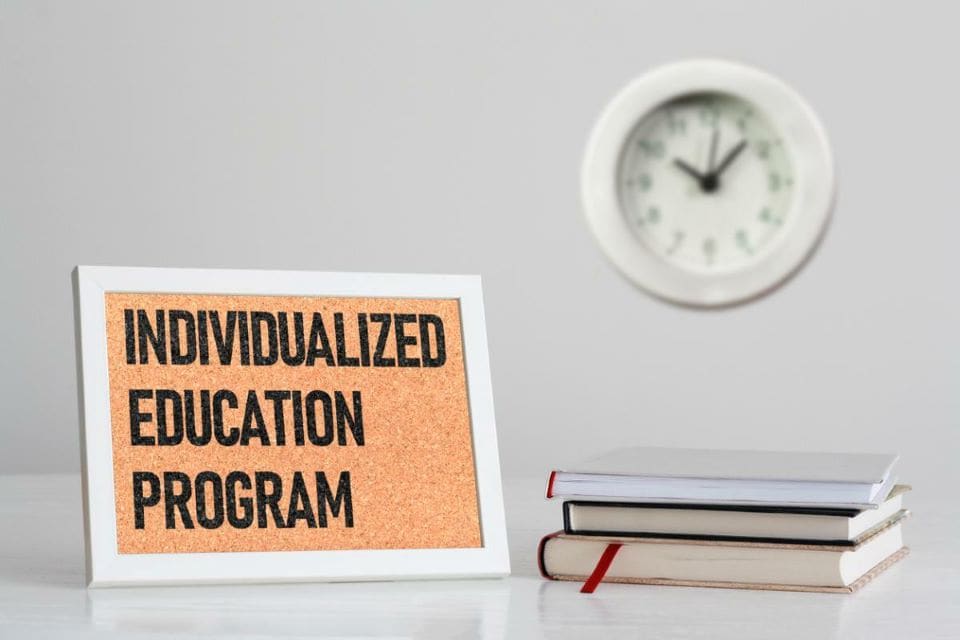Although Rubin Law does not currently provide legal representation in special education matters, we recognize that many of our clients have children who have or will have individualized education plans (IEPs) at some point in the future. As a result, we are providing this general legal information that is pertinent to many of our clients.
Children with special needs face unique challenges in the school setting. However, like all children, they are equally entitled to a free and appropriate public education (FAPE). Ensuring that your child receives a FAPE typically involves establishing an IEP for your child. An IEP describes the services and conditions necessary for your child to receive a FAPE in the least restrictive environment possible.
Understanding Your Child’s IEP
Your child’s IEP explains in detail what your child will be doing at school each day, what services the school will provide, in what type of classroom they will be placed, and other similar conditions. For instance, if your child receives occupational therapy twice per week while at school, the IEP will determine when and how long the child will receive that therapy. Likewise, suppose the child will be placed in an age-appropriate classroom for part of the day. In that case, the IEP will state the length of time that period will occur each day, what activities will occur during that period, and what assistive services your child will receive during that period. The IEP will also provide for any assistive services or devices the school will provide the child for all or part of the day, such as an individual aide or an assistive technology device.
A team of people, including a special education teacher, counselor, and the child’s parents or guardians, develops an IEP. In addition to the nuts and bolts of the education and services the child will receive throughout the day, the IEP will also contain specific and measurable goals for the child to meet. These goals are based on the child’s past educational performance, mental and functional capabilities, accommodations, and related services.
Qualifying for an IEP
Not all children who have difficulties in school qualify for an IEP. With that said, a child with special needs should qualify for an IEP. Children are eligible for an IEP if they meet the following criteria:
- They have a disability that qualifies them as “disabled” for the Americans with Disabilities Act (ADA); and
- Their disability interferes with their ability to access the class curriculum.
If your child with special needs has been denied an IEP and you believe that they are entitled you are entitled to one, you have legal recourse. You can appeal the decision of the school to deny your child with special needs an IEP. Alternatively, you request that your child be considered for a Section 504 plan. While a Section 504 plan does not provide as many protections and/or services for your child, it can provide reasonable accommodation that may make school more accessible for your child with special needs.
Enforcing Your Child’s IEP
All too often, your child’s teachers, counselor, social worker, and other administrative staff at the school fail to follow the IEP as written. IEP violations can occur when the school fails to implement some or all conditions of the plan, one or more teachers fail to implement certain accommodations, and services are not provided in a timely or consistent manner.
Schools also must review and update your child’s IEP under certain conditions and within particular timeframes. Failure to heed those timeframes can result in IEP violations. Any deviation from your child’s IEP can impact his education progress and mental and physical well-being, so you must take steps to enforce his IEP if the school is not following it or change the IEP if needed to meet your child’s needs.
If you and the school disagree on a component of your child’s IEP or feel that the school is not properly enforcing or implementing your child’s IEP, you have various legal options. You can opt for mediation, in which a neutral third party meets with you and the school to devise a compromise to resolve the dispute. Both parties sign a mediation agreement, which is enforceable in court if one party does not follow through with its terms.
You can also file a formal complaint with the Illinois State Board of Education (ISBE) regardless of whether you have chosen mediation. If successful, your complaint can result in the school being forced to comply with the disputed provision in your child’s IEP or correct another violation concerning the IEP.
You may be able to reach a settlement agreement with the school district to resolve the dispute, either outside or through mediation. Again, this settlement agreement is enforceable in court. However, suppose you cannot reach a settlement agreement. In that case, your case can go to a due process hearing, resulting in a legally binding decision that can be appealed in court if either party disagrees with the decision.
Call Today to Learn How We Can Help a Child with Special Needs
Rubin Law is the only Illinois law firm to dedicate itself exclusively to providing compassionate legal services for children and adults with special needs. We offer unique legal and future planning techniques to meet your family’s individual needs.
Call us today at 866-TO-RUBIN or email us at email@rubinlaw.com to learn more about the services we can offer you and your family.

